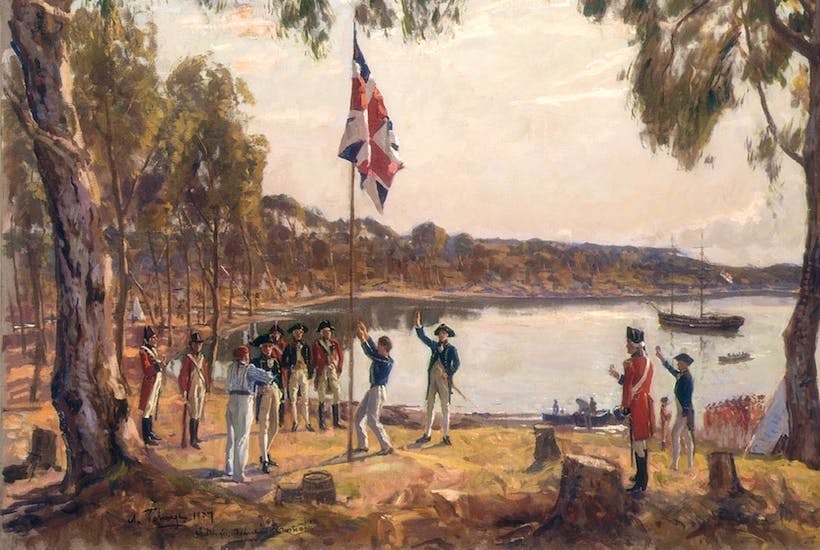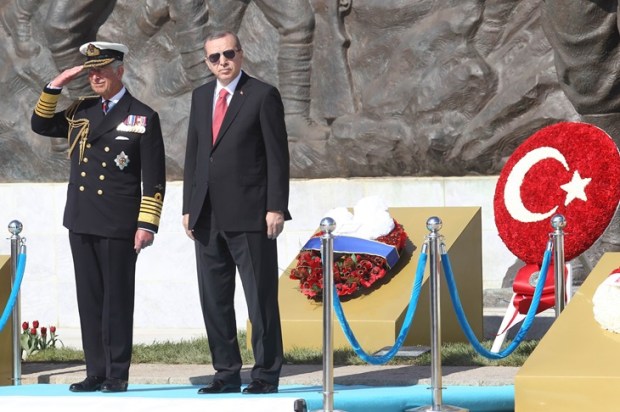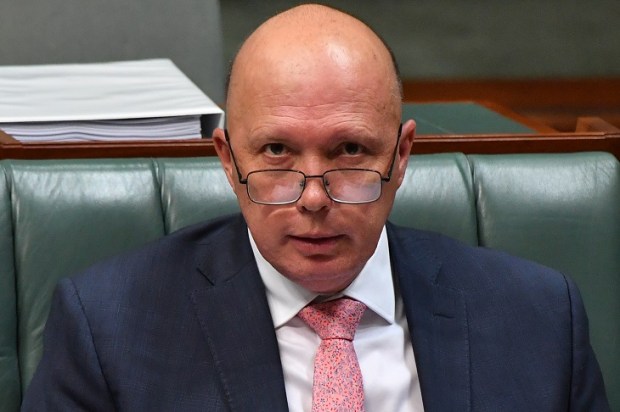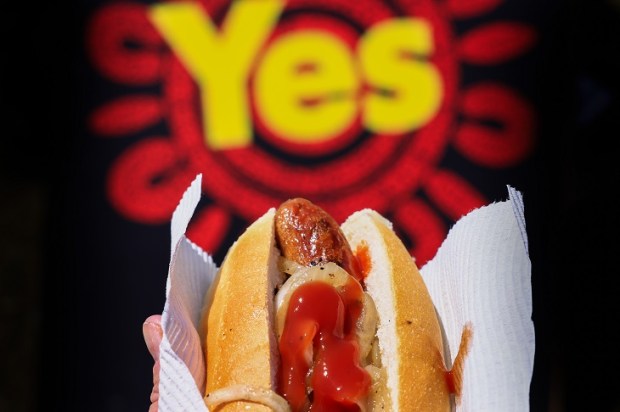It has become fashionable for some wokesters to object to Australia Day celebrations, even calling we modern Australians an occupying or invading power. Your ABC announced that it will refer to Australia Day as Invasion Day — or at least tried to get away with the stunt. Unfortunately, whoever drafted the acknowledgement let their feelings overcome their reason. The ABC recognises the indigenous peoples as ‘first Australians’ while ignoring their several tribal names. Australia was the English name given to the land by Matthew Flinders in 1804 but there were no Australians until federation, only subjects of the Queen residing in separate colonies.
The television advertisement run ad nauseam by the National Australia Day Council actually panders to the ‘invading power’ idea by assuming without proof that, as a multicultural community, we should talk to each other until, we somehow, do something Australian.
The irony of inviting us to talk to each other was missed by those who paid for the ad to air. If it wasn’t for the single English language we share, we wouldn’t be able to talk to each other, we wouldn’t understand each other’s needs and we wouldn’t be a nation.
The other offensive aspect of that dreadful advertisement is how it perpetuates the myth that Australia became a nation on January 26, 1788. That date marks the arrival of Captain Phillip in Port Jackson and the unfurling of the Union Jack at Sydney Cove; the foundation of the colony of New South Wales was founded. The land Phillip stood upon had actually been discovered by Captain Cook in 1770 but only named 30 odd years later. If the truth was important, January 26 has nothing to do with Australia Day.
To celebrate the nationhood of Australia we must look to the date on which Australia became an independent nation with the name Commonwealth of Australia. That was when the Australian people voted to accept the Commonwealth of Australia Constitution.
That, according to one former High Court Chief Justice, is when we became an independent nation of Australians and that view accords with political science. Our nation, Australia, didn’t exist until the referenda were successful and that happened on the following dates:
New South Wales: 28 June 1899.
Victoria: 27 July 1899.
South Australia: 29 April 1899.
Queensland: 28 September 1899.
Tasmania: 27 July 1899.
Western Australia: 31 July 1900.
Our High Court argues that nationhood occurred when the British Parliament enacted the Constitution, but the United States showed it didn’t have to wait for British approval to become a nation and Australia took its queue from the United States by having its people consenting to the Constitution. That was our act of independence.
But we can easily remedy this national day defect. Out of deference to our indigenous brethren who actually resent both Captain Phillip and Captain Cook, I suggest that Australia Day should be moved to one of the above dates, to be selected at a referendum.
That would have the advantage of our national day being consistent with the historical fact of nationhood. It is the current inconsistency that has embarrassed the National Council, forcing it to approve an advertisement that reflects nothing about our nation, either its day of coming into being, or the chief characteristics of what it is to be Australian. The ad was designed on the assumption that the nation is divided and needs to come together. Unfortunately, it was unable to articulate any particular reason why unity was needed in the face of diversity.
The ad is very much like the Covid ad where we were told “We’re all in this together.” Now we are told: “We’re all part of the story.” While the covid strategy was to deny everyone the company of their fellow Australians, there cannot be a unifying theme if every person, every culture, every state, is diverse with their own story but no one can articulate the ground by which the unity of citizenship of our nation is preferable.
If the Australia Day Council was seeking a theme of unification, it might have started by explaining that Australia Day is a celebration of the necessary virtues for a people who have chosen to live together in a democratic Commonwealth, and how those virtues need to be cultivated and encouraged in our children if our nation is to flourish, not just now but at all times.
The current division in the US is not the responsibility of Donald Trump. It is the result of the abolition of the very instruction to which I am referring, what in the States was, before it was abolished, called the civics programme.
As part of the transition to a new national day event, I suggest that we ditch the current tune, Advance Australia Fair, as our national song. It is not an anthem. It is song that accompanied news headlines in picture theatres. It is not suitable for a national anthem.
In its place, I suggest that the government hold a national competition with a prize for a proper national anthem, one composed in an anthem style with a lyric that captures the essence of our nation, its future promise, its vital strengths the virtues of its people and its government of the people. No one is inspired to noble and heroic actions by hearing of ‘a land girt by sea’. Nor are they emboldened by being ‘one and free’. Let’s start again.
And just to make sure we leave no one out, I think we should retain the current holiday on 26 January and give it a new name.
Dr David Long is a retired solicitor and economist.
Got something to add? Join the discussion and comment below.
Get 10 issues for just $10
Subscribe to The Spectator Australia today for the next 10 magazine issues, plus full online access, for just $10.

























Comments
Don't miss out
Join the conversation with other Spectator Australia readers. Subscribe to leave a comment.
SUBSCRIBEAlready a subscriber? Log in